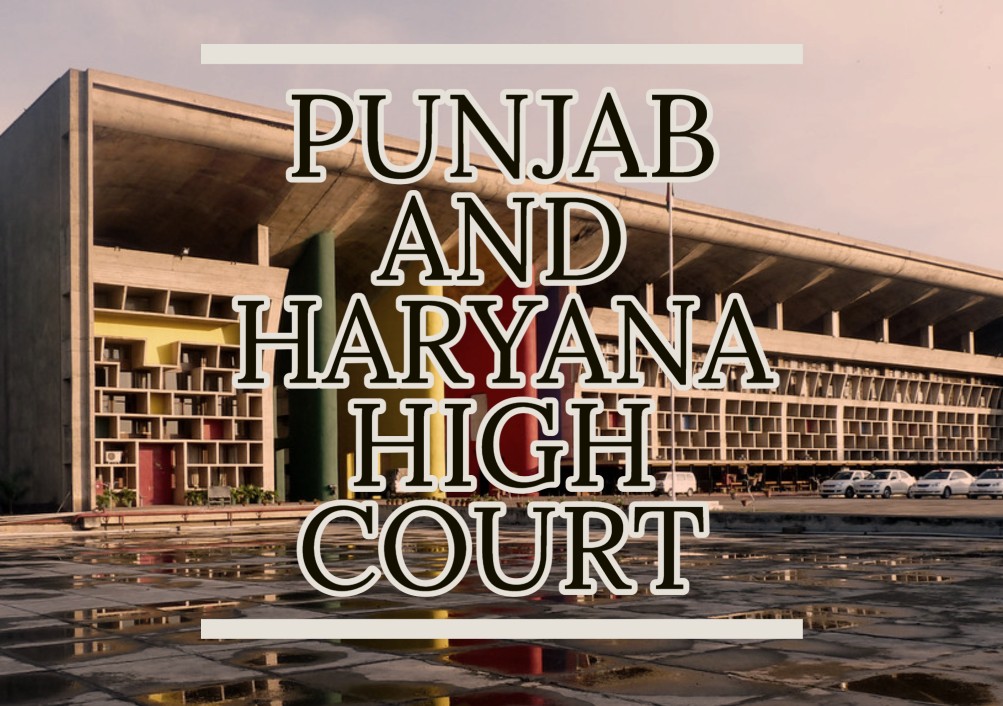In CR No.3826 of 2019 (O&M)- PUNJ HC- Where more efficacious remedy is available, party is under legal obligation to choose that one u/s 41(h) of Specific Relief Act: P&H HC Justice Fateh Deep Singh [28-04-2022]

Read Order: Amir Kapoor v. Nisha & Another
Monika Rahar
Chandigarh, May 04, 2022: While dealing with a civil revision, the Punjab and Haryana High Court has held that in the light of well settled law and the statutory provisions by way of Section 41(h) of the Specific Relief Act where a more efficacious remedy is available, the party is under legal obligation to choose that one.
Essentially, in this case, the marriage between Amit Kapoor (present petitioner) and Nisha (the first respondent) was solemnized on May 04, 2003 out of which the second respondent (Master Harshit) was born to them in 2004.
On account of matrimonial dispute that arose between the spouses, a criminal case under Sections 498, 323, 406 IPC was lodged. Along with this, a complaint under Section 12 of the Protection of Women from Domestic Violence Act, 2005 as also maintenance application under Section 125 Cr.P.C. were filed.
Eventually, their marriage was dissolved after a divorce decree was passed in May 2015 by the Court of District Judge, Family in response to a petition filed under Section 13(1)(ia) and (ib) of Hindu Marriage Act, 1955.
In the meanwhile, on May 24, 2018, the husband filed an application under Order 39 Rule 1 and 2 CPC read with Section 151 CPC seeking an injunction against the wife, however the same was dismissed.
The battle between the parties did not subside and proceedings under Section 127 Cr.P.C. were invoked by the husband who also filed the present petition by way of civil revision challenging the order dated October 26, 2018 in respect of appeal and order dated May 31, 2018 dismissing the application under Order 39 Rule 1 and 2 CPC read with Section 151 CPC.
The petitioner’s counsel submitted that by virtue of the suit, the husband was merely trying to seek a declaration and mandatory injunction with consequential relief of permanent injunction for a decree and that the judgment and order dated August 26, 2010 was an outcome of fraud and thus the other petitions for maintenance and alteration in the maintenance allowance including proceedings under the Protection of Women from Domestic Violence Act, 2005 were termed to be misuse of the process of Court.
The judgment and order dated August 26, 2010 was passed in an application under Section 125 Cr.P.C. for grant of maintenance allowance whereby maintenance allowance was granted to the wife and the minor child by the Court of District Judge, Family Court, Faridabad.
In respect of the contention of the decision rendered in the maintenance proceeding, the Bench of Justice Fateh Deep Singh opined that under the relevant provisions of Cr.P.C., only a revision lies under Section 397, 398 and 399 Cr.P.C., which was not assailed nor brought to the notice of the Court by counsel for the petitioner and therefore, the Court was of the said, “mere challenging such a finding in a civil suit certainly is not permissible in view of the well enunciated law that recourse has to be laid to the provisions enshrined under the law and since the statute provides a remedy to challenge this order, the same needs to be followed which the petitioner has failed to do so.”
By virtue of the order dated May 31, 2018 ad-interim injunction was sought in the suit of the husband and the Trial Court declined the same. Regarding this, the Court was of the opinion that there was a specific remedy under Order 42 CPC which was never availed of.
Furthermore, the Court observed that in order to seek enforcement and grant of maintenance, provisions of Chapter IX were laid down under Cr.P.C. but the same were not adhered to by the petitioner. Thus, in the light of well settled law and the statutory provisions by way of Section 41(h) of the Specific Relief Act where a more efficacious remedy is available, the party is under legal obligation to choose that one.
Thus, while holding that the filing of the suit and the challenging of this order was contrary to the law, the present petition was dismissed in limine.
Sign up for our weekly newsletter to stay up to date on our product, events featured blog, special offer and all of the exciting things that take place here at Legitquest.




Add a Comment